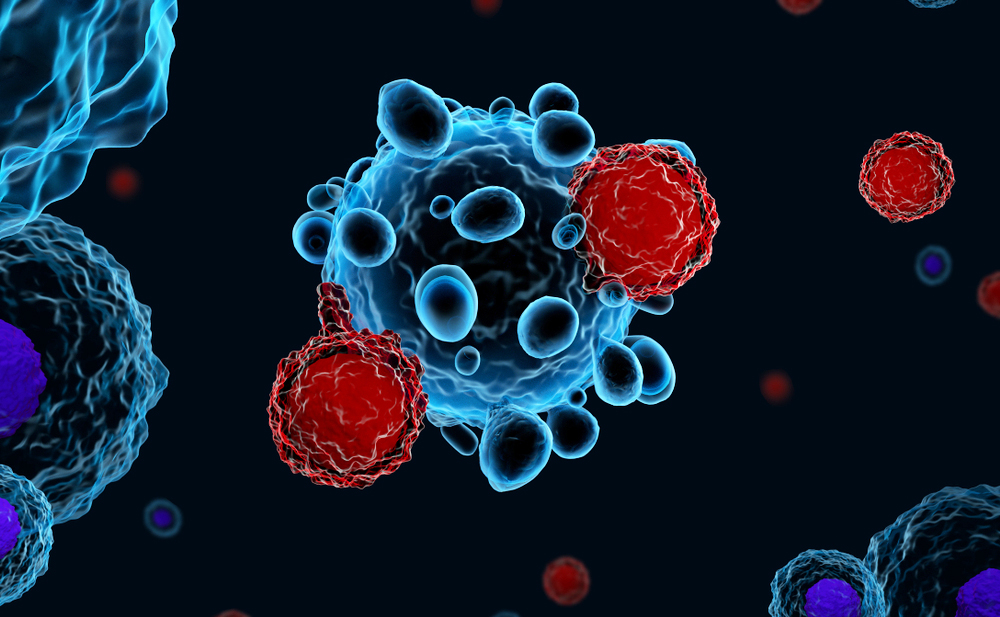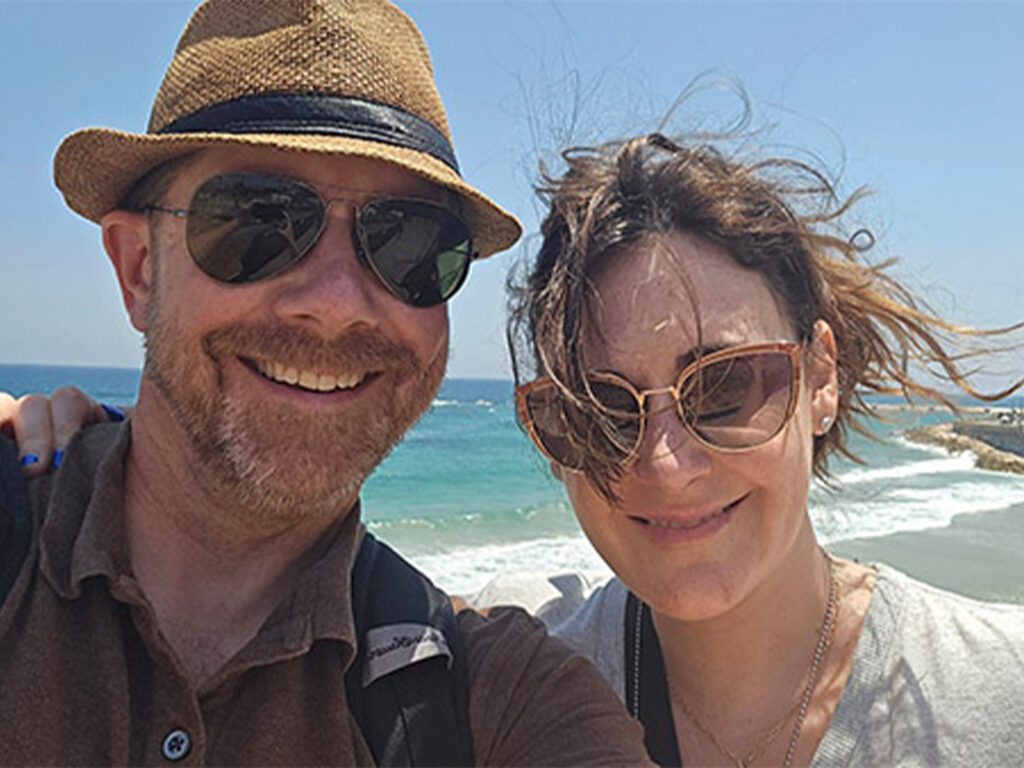CAR-T cell immunotherapy has already transformed care for certain kinds of cancers. And that presents researchers with a new question, according to Marcela Maus, MD, PhD, director of the Cellular Immunotherapy Program at Massachusetts General Hospital Cancer Center. “Can we use what we’ve learned,” she asks, “and extend it to other cancers and even other diseases that might benefit from giving reengineered T cells?”

CAR-T cell therapy is a form of immunotherapy — boosting the body’s normal immune system defenses as a way to kill cancer cells. The immune system’s T cells are removed from a patient and genetically reprogrammed so that, when returned to the patient’s bloodstream, they seek and destroy cancer cells.
So far, CAR-T cell therapy successes have been for patients with blood cancers like leukemia and lymphoma, and now multiple myeloma. But it doesn’t work for everybody with these blood cancers and, thus far, it has not worked very well for tumors formed from solid masses of tissue, like cancers of the brain, liver or kidneys.
“We’ve learned enough that we know it can work, however, so it’s a matter of finding ways to make it better,” Dr. Maus says.
In her laboratory, she and her colleagues aim to both improve T cell therapies for blood cancers and find ways to exploit this promising strategy for use against other cancers. They endow T cells with new properties and target-seeking instructions so they zero in only on cancer cells. “We equip them so they are armed and ready even in the hostile environment of a tumor,” she says.
The hope is that engineered T cells will patrol for returning cancer cells the rest of a patient’s life.
CAR-T Cell Strategies
A critical step is to find the best target cell on the tumor to knock out the cancer — without unintended effects on surrounding normal cells. They’ve been working on several new tumor targets they’ve found for the blood cancers, as well as for glioblastoma, an aggressive brain cancer.
But sometimes, as seems to happen with glioblastoma, the tumor strikes back. “It is possible that we need to program CAR-T cells to recognize more than one target,” she suggests. “That will probably be our strategy for brain tumors and potentially for other solid tumors as well.”
She has also recently started exploring the potential partnering of CAR-Ts with a revolutionary gene editing tool called CRISPR Cas-9. Acting like molecular scissors, CRISPRs make it easy and quick to cut and paste DNA, potentially correcting genetic defects and curing diseases like cancer.
CRISPR Cas-9 could be used to create even more powerful CAR-T cells. “There are a world of possibilities with it,” Dr. Maus says. Early data are promising, but she says that much more testing is needed.
When engineered T cells are returned to a patient, they are like “living drugs,” she says. The hope is that they will patrol for returning cancer cells for the rest of the patient’s life. The longest experience with CAR-T cell immunotherapy in patients, however, has only been about seven years, Dr. Maus explains.
Expanding Applications
Other Mass General researchers are also exploring T cell therapies.
Dr. Maus’ colleague at the Center for Cancer Immunology, Mark Cobbold, MD, PhD, has innovative ideas for using T cells in different ways to boost the immune system’s anti-tumor response, for example. Mass General Cancer Center oncologist David Spriggs, MD, director of the Gynecologic Oncology Program, is interested in using CAR-T cell therapy for ovarian cancer.
Other Mass General researchers are intrigued by CAR-T cell therapy for an opposite purpose: tapping T cells to control an unwanted immune reaction. This could help with autoimmune diseases, which happen when the immune system mistakenly attacks healthy cells. Mass General plastic and reconstructive surgeon Curtis L. Cetrulo, Jr., MD, is investigating the use of CAR-T cells to prevent tissue rejection after transplantation of hands or faces.
One of the major barriers to expanding T cell therapy is the complexity, time and expense of custom designing each individual patient’s T cells.
“We have a vision, but it’s going to take more resources — human and financial — to realize it.”
Incredible Opportunities
To address this, Dr. Maus is collaborating with Mehmet Toner, PhD, a prominent bioengineer at Mass General’s Center for Engineering in Medicine. Dr. Toner uses advanced cell processing tools and approaches to automate the isolation and genetic modification of T cells, preparing them for transfusion back into the patient. He uses so-called microfluidic systems to process and manipulate extremely large amounts of T cell fluids required for this application.
“Using microfluidics technologies, we can process T cells at speeds of over 300 million cells per second,” Dr. Toner says.
T cell therapy, as well as other forms of immunotherapy, says Dr. Maus, “offer incredible opportunities for the next generation of innovations in medicine.”
But they won’t happen overnight, she cautions. “We have a vision, but it’s going to take more resources — human and financial — to realize it.”
For more information about how you can support cancer immunotherapy research at Mass General, please contact us.





